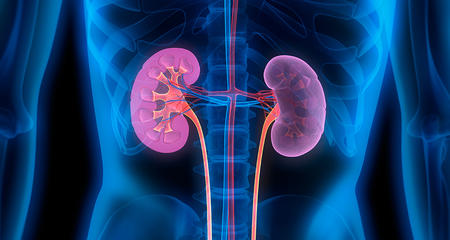Being overweight or obese predisposes an individual to many medical problems including diabetes, high blood pressure, heart disease, stroke, depression and some types of cancer. In the United States, the frequency of these conditions is increasing at epidemic rates.
Froedtert & the Medical College of Wisconsin endocrinologists work closely with dietitians, exercise physiologists, behavioral therapists and bariatric surgeons as part of the Comprehensive Weight Loss Center to help patients achieve realistic weight-loss goals and improve health.
Diagnosing Obesity
Obesity is diagnosed using a formula based on height and weight called the body mass index (BMI). Several online BMI calculators are available. Higher BMIs are associated with greater risk of health problems. A normal BMI is 18.5 to 24.9. Adults with a BMI of 30 or more are considered obese. Measuring waist circumference can also be helpful in determining risk of obesity-related diseases.
While many people have a genetic predisposition to obesity, the multidisciplinary team can identify other causes and monitor for complications. These secondary conditions, which frequently have endocrine causes, can be identified through a careful medical history, physical exam, blood tests, saliva tests and X-rays, if needed.
Secondary causes of obesity include:
- Hypothyroidism and hyperthyroidism
- Cushing syndrome/Cushing’s disease
- Insulinoma
- Brain trauma or brain tumors
- Medications
- Sleep disorders
- Rare congenital obesity syndromes, including:
- Prader-Willi syndrome
- Bardet-Biedl syndrome
- Lipodystrophy syndromes (abnormal deposits of fat tissue), including:
- Congenital generalized (no fat on the body since birth)
- Familial partial (fat only in certain areas)
- Acquired generalized (diffuse loss of fat)
- Acquired partial (loss of fat only in certain areas)
- Acquired lipodystrophy in HIV-infected patients
Treating Obesity
Endocrine specialists at the Weight Management Clinic, part of the Comprehensive Weight Loss Center, work with patients to develop individualized treatment plans. This includes:
- Treating secondary causes of obesity, if present
- Diagnosing and treating complications of obesity, such as diabetes
- Prescribing diet, exercise and other lifestyle changes
- Referring to other specialists, as needed, for obesity-related health problems (e.g., cardiologists, neurologists and sleep medicine physicians)
Medical College of Wisconsin physicians and scientists are conducting clinical and basic science research looking at the causes, treatment and complications of obesity.
Individuals who are overweight or obese and are motivated to lose weight may arrange an appointment at one of the weight-loss clinics through self-referral or through a referral from their primary care physician.
Blogs, Patient Stories, Videos and Classes





